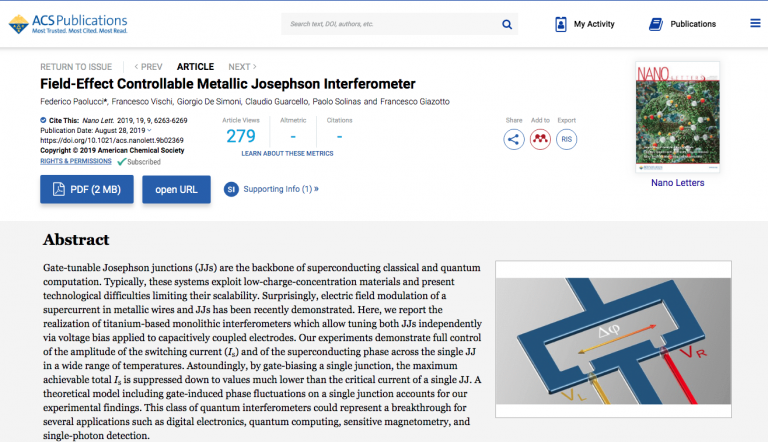A new research carried out at the SQEL report the realization of a titanium-based monolithic superconducting quantum interference device (SQUID) which can be tuned by applying a gate bias to its two Josephson junctions.
The research, published on Nano Letters by F. Paolucci and co-authors, points out the strong implications of the apparent coupling of a static electric field to the macroscopic phase of the superconducting condensate.
Beyond that, this class of quantum interferometers could represent a breakthrough for several applications such as digital electronics, quantum computing, sensitive magnetometry, and single-photon detection.

 “Field-Effect Controllable Metallic Josephson Interferometer” published on Nano Letters
“Field-Effect Controllable Metallic Josephson Interferometer” published on Nano Letters